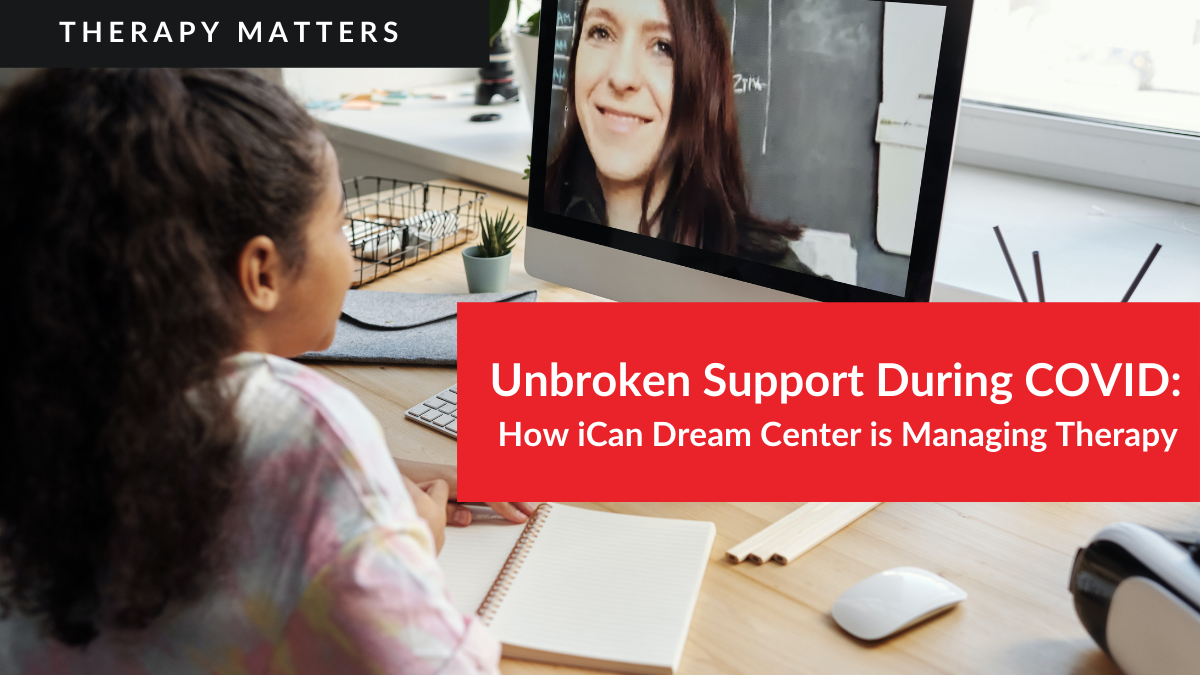
Therapy Matters | Unbroken Support During COVID: How iCan Dream Center is Managing Therapy
With COVID-19 changing how we communicate, the saying, “I’m just a phone call away,” means more now than ever before.
In a therapeutic educational setting and for people like Mr. T, a behavior therapist at iCan Dream Center, face-to-face communication was the primary method of communicating with students. When the pandemic began, to avoid possible setbacks, iCan Dream Center explored every avenue to facilitate continued communication between staff and students.
Keeping a sense of normalcy is crucial when working with people with developmental and emotional disabilities. Mr. T stated, “Continuing sessions with an individual who you support through life stressors is not only imperative during the COVID-19 pandemic but possible.”
Continued sessions are facilitated by telephone and video conferencing. “As a behavioral therapist, I can say that I prefer face-to-face sessions with students,” Mr. T said. “However, I find that being available on the phone is still effective and keeps our meetings on a normal schedule without losing much of the progress that has been established.”
While some may assume that it is less impactful to talk with a student on the phone, research comparing telephone with face-to-face behavioral therapy found that “therapy provided over the phone produced less dropout with clients and resulted in equal post-treatment outcomes in the treatment” (Mohr et al., 2012).
Another study found that “therapists can be confident that delivering care by telephone will generally not have a negative impact on TA/therapeutic alliance” (Shields, Kwasny, Cai & Mohr, 2014).
At iCan Dream Center, support truly is just a phone call away.
References
Mohr DC., Vella L., Hart S., Heckman T., Simon G., (2008). The effect of telephone-administered psychotherapy on symptoms of depression and attrition: A meta-analysis. Clinical Psychology: Science and Practice. 2008;15(3):243–253. [PMC free article] [PubMed] [Google Scholar]
Shields, C.S., Kwasny, M.J., Cai, X., & Mohr, D.C., (2014). Therapeutic Alliance in Face-to-face and Telephone-Administered Cognitive Behavioral Therapy. J Consult Clin Psychol. 2014 Apr; 82(2): 349–354. Published online 2014 Jan 20. doi: 10.1037/a0035554
